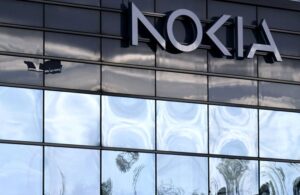Nokia’s Shares Surge on T-Mobile Reassurance: Analyzing the Market Dynamics
In a surprising turn of events, U.S.-listed shares of Nokia saw a notable increase of around 5% during after-hours trading on Tuesday. This surge came on the heels of T-Mobile’s clarification regarding its ongoing partnership with Nokia. The telecommunications giant firmly stated, “We have made no decision to end our working relationship with Nokia, and any reports in the media implying this are untrue.” This was in direct response to an analyst’s claim that T-Mobile could potentially pivot towards Swedish rival Ericsson for its network requirements.
This swing in investor sentiment illustrates how vulnerable market perceptions can be to media reports and analysis. Initially, shares of Nokia experienced a roughly 7% decline after Earl Lum of EJL Wireless Research suggested that T-Mobile might be considering dropping Nokia due to concerns about the Finnish company’s ability to meet its networking needs. Lum’s commentary highlighted what he believed to be the superiority of Ericsson products, raising alarms among investors about Nokia’s standing.
Yet, T-Mobile’s rebuttal has not only buoyed Nokia’s shares but also sparked discussions around strategic supplier partnerships in the fast-evolving 5G landscape. T-Mobile emphasized that it collaborates with both Nokia and Ericsson to fulfill its Radio Access Network (RAN) needs. This partnership has been pivotal in establishing what is currently America’s largest and fastest 5G network.
The backdrop of this situation is critical: last year, fellow telecommunications giant AT&T opted for Ericsson to build a significant portion of its network, aiming to cover 70% of its wireless traffic in the U.S. by late 2026. This move further intensifies competition in the North American telecom market and puts pressure on Nokia to enhance its offerings.
From an investment perspective, this recent volatility highlights several key takeaways:
-
Market Sentiment vs. Fundamentals: The stark contrast in Nokia’s stock performance—first a drop, followed by a surge—underscores the importance of investor perception and market sentiment. Reactionary trading often overshadows the fundamental strengths of a company.
-
Importance of Communication: T-Mobile’s swift and assertive communication to counter the analyst’s claims underscores the importance of transparency in business relationships. Companies must manage their narratives proactively to mitigate market backlash.
-
Innovation and Competition: In the rapidly changing telecom sector, continual innovation is vital. Companies must not only deliver robust products but also demonstrate their capabilities in meeting evolving technological demands.
- Strategic Partnerships: The mention of both Nokia and Ericsson working together illustrates the strategic necessity of diversifying supplier relationships. Companies can benefit from hedging their bets by leveraging the strengths of multiple partners.
As investors keep a close watch on this dynamic situation, it will be essential for Nokia to adapt and respond to the competitive pressures exerted by both existing rivals and emerging technologies. The strength of strategic partnerships and product innovation will be the benchmarks on which the future success of Nokia and its stock will depend.
At Extreme Investor Network, we encourage our readers to analyze not just the headlines but the underlying dynamics influencing market movements. Keeping a sharp eye on how firms navigate these relationships can provide deeper insights into potential investment opportunities.

